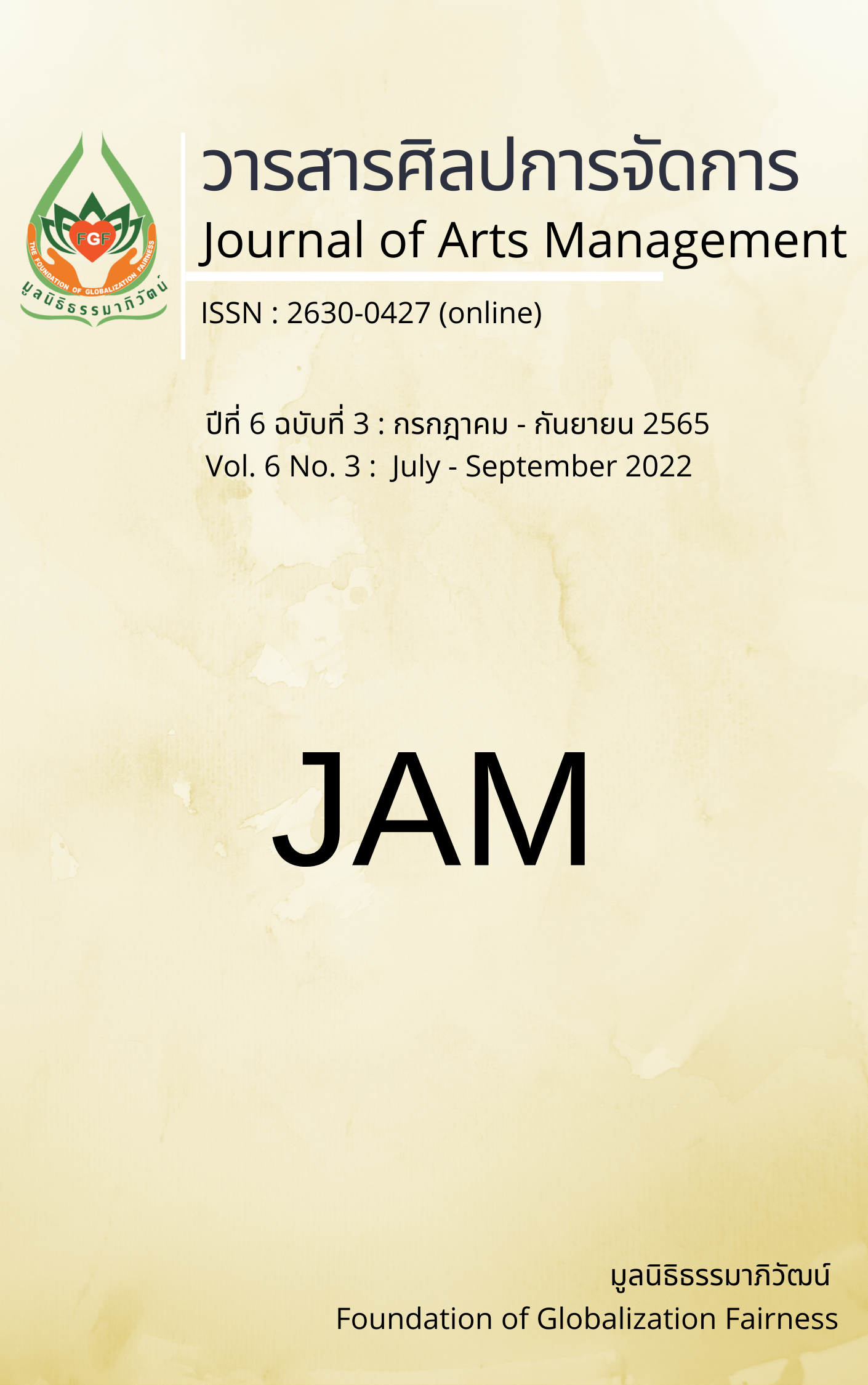Community Development in Ecotourism Attractions based on Biodiversity of Bang Pu Community, Pattani Province, Thailand
Main Article Content
Abstract
It is obvious that the future of the tourism industry in Thailand and other countries worldwide is likely to be focused on sustainability, particularly ecotourism. The objectives of this research were to study and analyse the potential of tourism resources based on biodiversity in order to examine the capacity of the community and quality standard evaluation of the ecotourism of the Bang Pu community. To investigate the behaviour and demands of Thai eco-tourists in order to propose the guidelines for the development and upgrade of ecotourism in the Bang Pu community. The research applied a mixed methods approach, comprising 385 samples and 50 key informants. Research tools included the questionnaire, interview form, quality standard evaluation of ecotourism attractions, the computer program for social research, content analysis, and descriptive research method. Research results indicated remarkable resources involving 32 types of natural resources, 11 cultures, and 13 activities. In terms of the quality standard evaluation of the ecotourism attractions in the Bang Pu community, After the development, the quality evaluation result was at an excellent level of 77 points. Further, the results of the study of the tourism behaviour of 385 tourists showed that most were interested in education about nature (20.78%). In addition, the study results of the demands for traveling of the sample group indicated that most of them agreed that the accommodation or hotels were convenient, comfortable, and safe, with the average opinion rate at 4.50. The qualitative and quantitative research results were shared by the researcher with the community to propose the development guidelines based on the participation of the community. Consequently, 29 guidelines for developing and upgrading ecotourism in Bang Pu community, Pattani Province, towards the sustainable development goals were formulated under the English term “ECO Bangpu Model”.
Article Details

This work is licensed under a Creative Commons Attribution-NonCommercial-NoDerivatives 4.0 International License.
Views and opinions appearing in articles in the Journal of Arts of Management It is the responsibility of the author of the article. and does not constitute the view and responsibility of the editorial team I agree that the article is copyright of the Arts and Management Journal.
References
Chairat, J. (2018). Development of tourism potential in local identity and livelihood along Lake Basin: Nakornsri-Thammarat, Pattalung, and Songkhla. The Thailand Research Fund.
Cochran, W.G. (1963). Sampling Technique (2nd ed.). John Wiley & Sons.
Cohen, J. M., & Uphoff, N. T. (1980). Participation’s Place in Rural Development: Seeking Clarity through Specificity. World Development, 8(3), 213-235.
Colaizzi, P.F. (1978). Psychological research as a phenomenologist views it. In: Valle, R.S. and King, M., Eds., Existential-Phenomenological Alternatives for Psychology. Oxford University.
Goeldner, C., & Ritchie, B. (2006). Tourism: Principles, Practices, Philosophies (10th ed). John Wiley & Sons.
Kongprasert, P. (2008). Integrated Ecotourism Planning for Sustainable Tourism Development on Pha-ngan Island, Suratthani Province. Journal of Social Sciences Srinakharinwirot University, 11(1), 20-34.
Ministry of Tourism and Sports. (2016). Thailand Industrial Development Strategy 4.0: 20-year term (2017 - 2036). https://shorturl.asia/Idg03
Ministry of Tourism and Sports. (2019). Tourism Economic Review no.1/2019. https://www.mots.go.th/more_news_new.php?cid=589
Pattani Heritage City.2019) ). Pattani Province Development Plan. http://www.pattani2018.pattani.go.th/
Sirinan, P., Ochanya, B., & Chatchaya, Y. (2016). Guidelines for Effective Development in Tourism Management of Wang Nam Khiao District, Nakhon Ratchasima Province. MBA- KKU Journal, 9(1), 234-259.
Surachet, C., & Dachanee, E. (1996). Examples of ecotourism in some countries. Faculty of Forestry, Kasetsart University. Thailand Development Research Institute. (2019). Policy Series on Fighting Covid-19. TDRI. https://tdri.or.th/2020/06/covid-19-turning-crisis-into-an-opportunity-for-natural-tourism/
The World Tourism Organization. (2002). International year of ecotourism, Tourism Policy. https://www.unwto.org/international-year-ecotourism-2002
The World Tourism Organization. (2019). TOURISM 4 SDGS. https://www.unwto.org/tourism4sdgs
Tourism Authority of Thailand. (2018). Summary of the Marketing Plan 2017. http://www.tatreviewmagazine.com/web/menu-read-tat /menu-2016/menu-42016/745-42016-th2560
United Nations Environment Programme. (2002). Ecotourism: principles, practices and policies for sustainability (Report). United Nations Environment Programme. https://www.unep.org/resources/report/ecotourism-principles-practices-and-policies- sustainability
UNWTO. (2019). Tourism towards 2030 Global Overview. The world Tourism Organization Design and print.
Worakawin, K., Nuananan, P., & Senawong, P. (2003). Thailand tourism geography. Geographic Association of Thailand.


